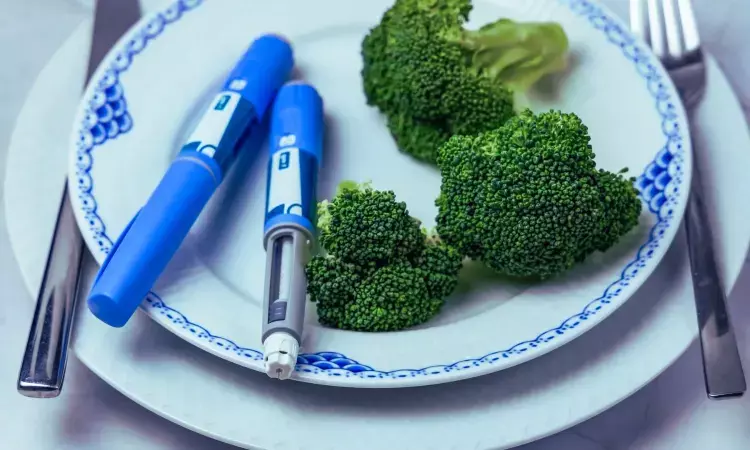- Home
- Medical news & Guidelines
- Anesthesiology
- Cardiology and CTVS
- Critical Care
- Dentistry
- Dermatology
- Diabetes and Endocrinology
- ENT
- Gastroenterology
- Medicine
- Nephrology
- Neurology
- Obstretics-Gynaecology
- Oncology
- Ophthalmology
- Orthopaedics
- Pediatrics-Neonatology
- Psychiatry
- Pulmonology
- Radiology
- Surgery
- Urology
- Laboratory Medicine
- Diet
- Nursing
- Paramedical
- Physiotherapy
- Health news
- Fact Check
- Bone Health Fact Check
- Brain Health Fact Check
- Cancer Related Fact Check
- Child Care Fact Check
- Dental and oral health fact check
- Diabetes and metabolic health fact check
- Diet and Nutrition Fact Check
- Eye and ENT Care Fact Check
- Fitness fact check
- Gut health fact check
- Heart health fact check
- Kidney health fact check
- Medical education fact check
- Men's health fact check
- Respiratory fact check
- Skin and hair care fact check
- Vaccine and Immunization fact check
- Women's health fact check
- AYUSH
- State News
- Andaman and Nicobar Islands
- Andhra Pradesh
- Arunachal Pradesh
- Assam
- Bihar
- Chandigarh
- Chattisgarh
- Dadra and Nagar Haveli
- Daman and Diu
- Delhi
- Goa
- Gujarat
- Haryana
- Himachal Pradesh
- Jammu & Kashmir
- Jharkhand
- Karnataka
- Kerala
- Ladakh
- Lakshadweep
- Madhya Pradesh
- Maharashtra
- Manipur
- Meghalaya
- Mizoram
- Nagaland
- Odisha
- Puducherry
- Punjab
- Rajasthan
- Sikkim
- Tamil Nadu
- Telangana
- Tripura
- Uttar Pradesh
- Uttrakhand
- West Bengal
- Medical Education
- Industry
Very low-calorie diet bests semaglutide in short-term weight loss, Combination promising for diabetes management: Study

UK: A study has found that combining semaglutide with very low-calorie diets (VLCD) is more effective than using Semaglutide alone to enhance pancreatic beta-cell function and decrease insulin resistance. Additionally, VLCD demonstrates superior efficacy in reducing body weight and fat mass in a shorter timeframe than Semaglutide alone.
"Future research with extended intervention and follow-up periods is essential to better understand the effects of the Semaglutide-VLCD combination treatment on managing type 2 diabetes (T2D) and obesity," the researchers wrote in Clinical Nutrition.
Type 2 diabetes is a complex disease marked by elevated blood glucose levels and insulin resistance, with impaired insulin secretion from pancreatic beta cells being the primary cause.
Overweight and obesity are significant risk factors for the development of diabetes, impacting 90% of individuals with type 2 diabetes. Research indicates that obesity can increase the risk of developing diabetes by seven times while being overweight is linked to insulin resistance and dysfunction in beta-cell function.
Very-low calorie diets and the glucagon-like peptide-1 receptor agonist (GLP1RA) semaglutide induce significant weight loss and improve glycaemic control in T2D patients. Oluwaseun Anyiam, University of Nottingham, Derby, UK, and colleagues conducted a pilot study to explore the comparative short-term effects of these interventions individually, and in combination, on weight, body composition, and metabolic outcomes.
The study included thirty individuals with type 2 diabetes (age 18–75 years, BMI 27–50 kg m−2). They were randomly assigned to receive Semaglutide (SEM), 800 kilocalorie/day VLCD (VLCD), or both in combination (COMB) for 12 weeks.
Weight and glycated hemoglobin (HbA1c) levels, dual-energy X-ray absorptiometry, and intravenous glucose tolerance tests (IVGTT) were conducted at baseline and after the intervention. Diet diaries were used to evaluate compliance. The insulin first-phase response during IVGTT served as an indicator of pancreatic beta-cell function, while insulin sensitivity was assessed using HOMA-IR.
The study led to the following findings:
- Significantly greater reductions in body weight and fat mass were observed in VLCD and COMB, than in SEM.
- VLCD and COMB resulted in a 5.4 and 7 percentage-point greater weight loss than SEM, respectively.
- HbA1c and fasting glucose reduced significantly in all groups, however, fasting insulin and HOMA-IR improved in VLCD and COMB only.
- Insulin first phase response during IVGTT increased in SEM and COMB, and this increase was significantly greater in COMB than VLCD.
The findings showed that VLCD elicited greater short-term fat mass and weight losses than Semaglutide. VLCD addition to Semaglutide stimulated further weight loss than Semaglutide alone.
"The combination did not produce additional effects on weight and body composition beyond those achieved with VLCD alone, but it did lead to greater improvements in pancreatic beta-cell function. Thus, further exploration is warranted of the combination of Semaglutide and VLCD warrants as a novel approach to T2D management," the researchers concluded.
Reference:
Anyiam, O., Phillips, B., Quinn, K., Wilkinson, D., Smith, K., Atherton, P., & Idris, I. (2024). Metabolic effects of very-low calorie diet, Semaglutide, or combination of the two, in individuals with type 2 diabetes mellitus. Clinical Nutrition, 43(8), 1907-1913. https://doi.org/10.1016/j.clnu.2024.06.034
Dr Kamal Kant Kohli-MBBS, DTCD- a chest specialist with more than 30 years of practice and a flair for writing clinical articles, Dr Kamal Kant Kohli joined Medical Dialogues as a Chief Editor of Medical News. Besides writing articles, as an editor, he proofreads and verifies all the medical content published on Medical Dialogues including those coming from journals, studies,medical conferences,guidelines etc. Email: drkohli@medicaldialogues.in. Contact no. 011-43720751


